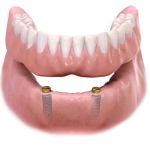SEO Title: Preventive Dental Treatments for Smokers: Essential Tips for Healthy Teeth
SEO Keywords: preventive dental treatments for smokers, dental care for smokers, gum disease prevention, smoking and oral health, oral hygiene for smokers, dental health for smokers
SEO Description: Discover the best preventive dental treatments for smokers to keep your teeth and gums healthy. Learn about gum disease prevention, oral hygiene tips, and how to maintain optimal oral health despite smoking.
Preventive Dental Treatments for Smokers: Essential Tips for Healthy Teeth
Smoking has long been recognized as a major factor in the development of serious health conditions, including cardiovascular disease, lung disease, and even cancer. However, many smokers overlook the significant impact smoking has on their oral health. Smokers are at a higher risk of developing gum disease, tooth loss, oral cancer, and other oral infections. The good news is that with the right preventive dental treatments, smokers can significantly reduce their risk of oral health problems and maintain healthier teeth and gums for longer.
- 1. Understanding Oral Health Risks for Smokers
- 2. Why Preventive Dental Care is Crucial for Smokers
- 3. Key Preventive Dental Treatments for Smokers
- 4. Maintaining Good Oral Hygiene Despite Smoking
- 5. Importance of Regular Dental Checkups for Smokers
- 6. Lifestyle Changes to Support Oral Health
1. Understanding Oral Health Risks for Smokers
Smoking has a direct and detrimental impact on the health of your teeth and gums. The chemicals found in tobacco smoke can harm your oral tissues, leading to increased plaque buildup, tartar, and bacteria in the mouth. This creates an ideal environment for gum disease and tooth decay. Smokers also experience reduced blood flow to the gums, which can delay healing and make it more difficult for the body to fight infections.
Beyond gum disease, smoking is also a major risk factor for oral cancer. Smokers are much more likely to develop cancers of the mouth, throat, and other areas in the oral cavity. Additionally, smoking causes bad breath (halitosis) and stains teeth, making your smile less attractive. The overall impact of smoking on oral health is serious, but with proactive care, the risks can be minimized.
2. Why Preventive Dental Care is Crucial for Smokers
Preventive dental care is essential for smokers because it helps address the specific risks they face in terms of oral health. Smokers are more likely to develop gum disease, cavities, and other dental problems, so regular preventive care can make a significant difference. By maintaining a strong oral hygiene routine and following proper treatment protocols, smokers can effectively minimize the damage caused by smoking.
Moreover, preventive dental treatments allow for early detection of oral health issues. Regular checkups and cleanings can identify problems like gum disease before they become severe, giving smokers a chance to take action and prevent further damage. Early intervention can help protect teeth and gums and keep your smile healthy for longer.
3. Key Preventive Dental Treatments for Smokers
For smokers, preventive dental treatments go beyond basic brushing and flossing. Here are some key treatments and strategies to help maintain optimal oral health:
- Professional Cleanings: Smokers should visit the dentist for professional cleanings more frequently, ideally every three to four months. These cleanings remove plaque and tartar buildup, which can contribute to gum disease and other oral issues.
- Scaling and Root Planing: If gum disease is detected, smokers may need scaling and root planing. This deep cleaning process removes plaque and tartar from beneath the gum line and smooths the root surfaces to help prevent further gum recession.
- Fluoride Treatments: Smokers are at an increased risk of cavities, so fluoride treatments can help strengthen tooth enamel and prevent tooth decay.
- Antibiotic Therapy: In some cases, antibiotics may be prescribed to treat gum disease and reduce inflammation in the gums caused by smoking.
By incorporating these treatments into your dental care routine, you can significantly reduce the impact of smoking on your oral health and minimize the risk of infection or disease.
4. Maintaining Good Oral Hygiene Despite Smoking
While professional dental treatments are essential, the foundation of good oral health starts at home. Smokers must adopt a strict oral hygiene routine to combat the effects of smoking. Here are some tips to maintain good oral hygiene:
- Brush Twice a Day: Brush your teeth with fluoride toothpaste twice daily to remove plaque and prevent bacteria buildup. Make sure to use a soft-bristled toothbrush and brush for at least two minutes.
- Floss Daily: Flossing helps remove plaque and food particles between your teeth, areas that a toothbrush cannot reach.
- Use Mouthwash: Mouthwash containing antibacterial properties can help reduce plaque and keep your breath fresh.
By following these practices, smokers can limit the buildup of harmful bacteria and prevent the development of gum disease and cavities.
5. Importance of Regular Dental Checkups for Smokers
Regular dental checkups are essential for smokers. During these visits, your dentist will perform thorough exams to identify any early signs of gum disease, cavities, or oral cancer. Early detection is key to preventing serious oral health issues.
Additionally, dental checkups allow your dentist to provide advice on improving your oral hygiene routine and addressing any specific concerns related to smoking. Smokers should not wait for symptoms to appear before seeking professional care. Regular visits to the dentist can ensure that your oral health stays in top shape, even in the face of the challenges posed by smoking.
6. Lifestyle Changes to Support Oral Health
Beyond dental treatments, smokers can make lifestyle changes to improve their oral health. The most effective change is quitting smoking altogether, which can significantly reduce the risks of gum disease, cavities, and oral cancer. Even cutting back on smoking can have positive effects on your oral health.
Additionally, maintaining a balanced diet rich in vitamins and minerals is essential for healthy teeth and gums. Foods high in calcium, vitamin D, and antioxidants can help strengthen your teeth and prevent inflammation in your gums.
Staying hydrated and managing stress also contribute to good oral health. Drinking plenty of water helps wash away food particles and bacteria, while stress management techniques can prevent teeth grinding and other habits that harm your teeth.
If you're a smoker and want to protect your teeth and gums from the damaging effects of tobacco, visit Dentistry Toothtruth to learn more about preventive dental treatments and to schedule an appointment with an expert.







 Cary Family Dental4.0 (734 review)
Cary Family Dental4.0 (734 review) St. Bernard Hospital Dental Center3.0 (44 review)
St. Bernard Hospital Dental Center3.0 (44 review) Pinnacle Peak Family Dentistry4.0 (439 review)
Pinnacle Peak Family Dentistry4.0 (439 review) Yonkers Dental Implants Center4.0 (63 review)
Yonkers Dental Implants Center4.0 (63 review) City Dental- Dental Implants and Orthodontics4.0 (40 review)
City Dental- Dental Implants and Orthodontics4.0 (40 review) Dental Dreams4.0 (967 review)
Dental Dreams4.0 (967 review) The Importance of Oral Health Education During Pregnancy for a Healthy Pregnancy
The Importance of Oral Health Education During Pregnancy for a Healthy Pregnancy Best Tips for Brushing Your Teeth Properly for Healthy Gums: Essential Techniques for Oral Health
Best Tips for Brushing Your Teeth Properly for Healthy Gums: Essential Techniques for Oral Health Why Skipping Dental Checkups Can Lead to Bigger Oral Health Problems
Why Skipping Dental Checkups Can Lead to Bigger Oral Health Problems Advantages of Porcelain Dental Restorations
Advantages of Porcelain Dental Restorations How Can Diabetes Cause Tooth and Gum Problems? Preventing and Managing Oral Health Issues
How Can Diabetes Cause Tooth and Gum Problems? Preventing and Managing Oral Health Issues Healthy Habits for Promoting Good Oral Health and Hygiene: Tips for a Healthy Smile
Healthy Habits for Promoting Good Oral Health and Hygiene: Tips for a Healthy Smile